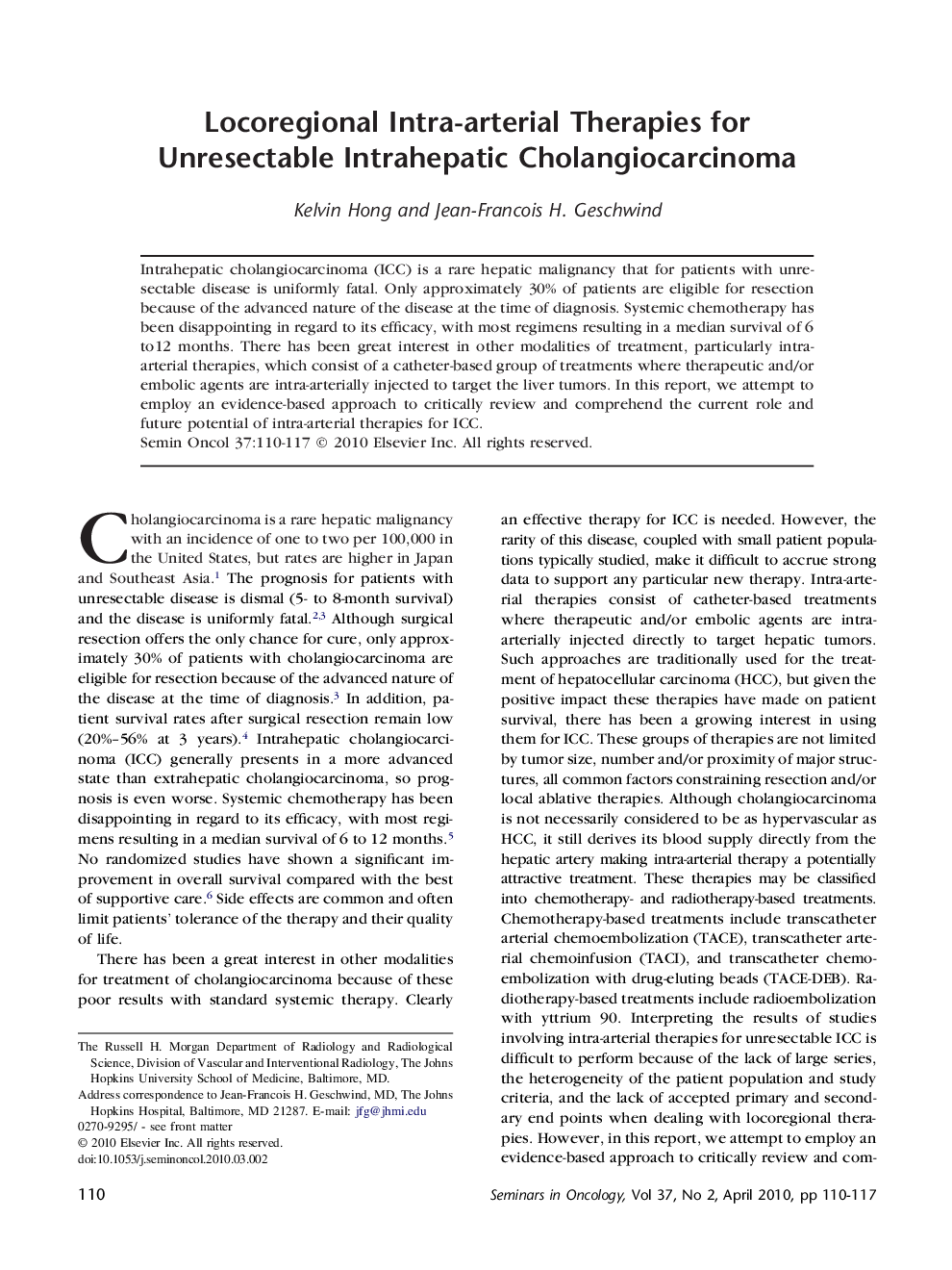| Article ID | Journal | Published Year | Pages | File Type |
|---|---|---|---|---|
| 2162597 | Seminars in Oncology | 2010 | 8 Pages |
Abstract
Intrahepatic cholangiocarcinoma (ICC) is a rare hepatic malignancy that for patients with unresectable disease is uniformly fatal. Only approximately 30% of patients are eligible for resection because of the advanced nature of the disease at the time of diagnosis. Systemic chemotherapy has been disappointing in regard to its efficacy, with most regimens resulting in a median survival of 6 to12 months. There has been great interest in other modalities of treatment, particularly intra-arterial therapies, which consist of a catheter-based group of treatments where therapeutic and/or embolic agents are intra-arterially injected to target the liver tumors. In this report, we attempt to employ an evidence-based approach to critically review and comprehend the current role and future potential of intra-arterial therapies for ICC.
Related Topics
Life Sciences
Biochemistry, Genetics and Molecular Biology
Cancer Research
Authors
Kelvin Hong, Jean-Francois H. Geschwind,
